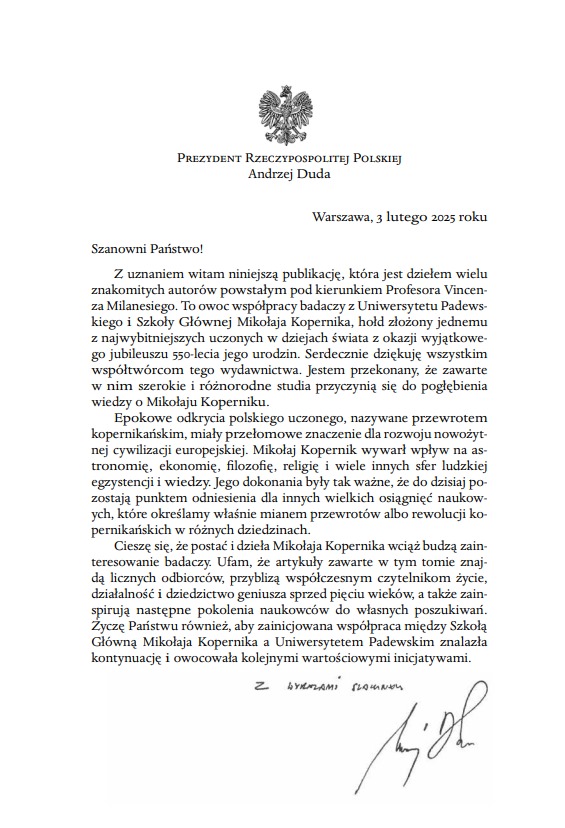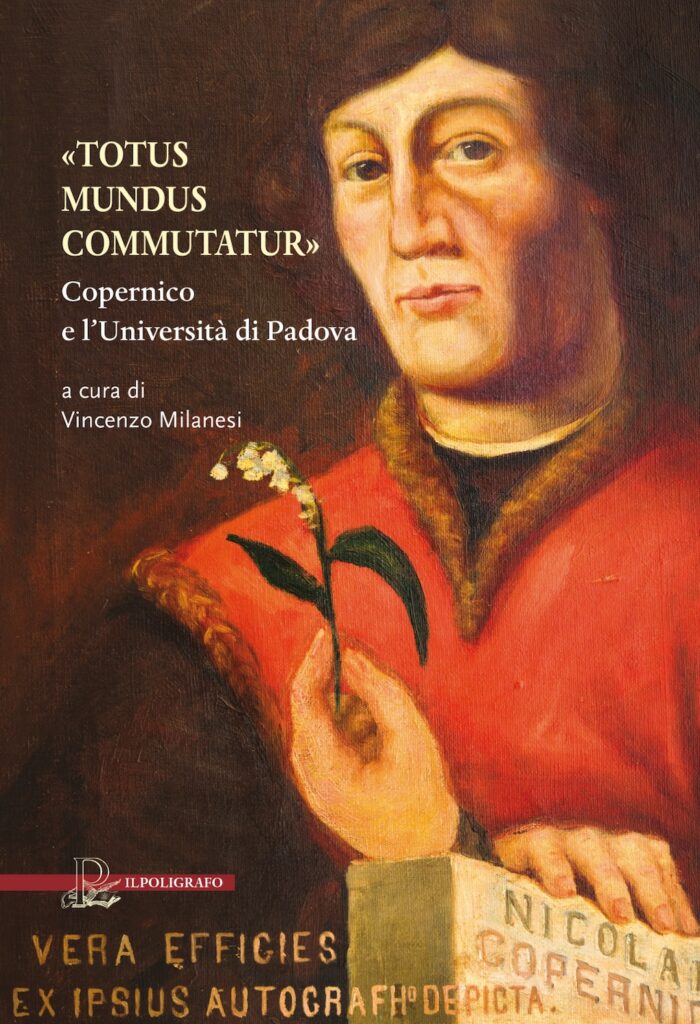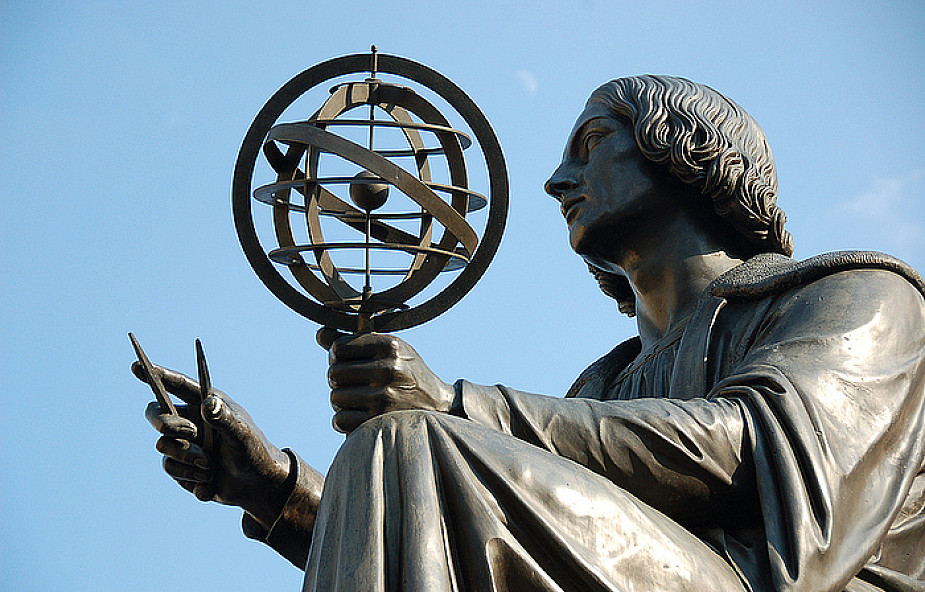The University of Padova, in cooperation with the Nicolaus Copernicus Superior School, has prepared a collective work Omaggio a Copernico. L’Università di Padova per il 550° della nascita, edited by Prof. Vincenzo Milanesi. The work was created on the 550th anniversary of Nicolaus Copernicus’ birth and is a joint tribute to one of the most outstanding scholars in world history. The foreword to the publication was written by the President of the Republic of Poland, Andrzej Duda, who emphasized the unique nature of the project and its significance for contemporary research on Copernicus’ legacy:
“I welcome this publication, which is the work of many distinguished authors under the direction of Professor Vincenzo Milanesi. It is the fruit of cooperation between researchers from the University of Padua and the Nicolaus Copernicus Superior School, a tribute to one of the most outstanding scholars in world history on the occasion of the exceptional 550th anniversary of his birth. I would like to express my sincere thanks to all the contributors to this publication. I am convinced that the wide-ranging and diverse studies contained in it will contribute to a deeper understanding of Nicolaus Copernicus,” wrote the President of Poland.

The President of Poland also recalled that the “Copernican revolution” was of groundbreaking importance for the development of modern European civilization. Nicolaus Copernicus influenced astronomy, economics, philosophy, religion, and many other areas of human existence and knowledge. “His achievements were so important that to this day they remain a point of reference for other great scientific achievements, which we refer to as Copernican revolutions or breakthroughs in various fields,” emphasized President Duda in his foreword.
President Duda also expressed his joy that Copernicus and his works continue to inspire contemporary researchers, and hopes that this publication will inspire future generations of scientists to continue their research: “I trust that the articles contained in this volume will find a wide audience, bring contemporary readers closer to the life, work, and legacy of a genius from five centuries ago, and inspire future generations of scientists to pursue their own research.”





